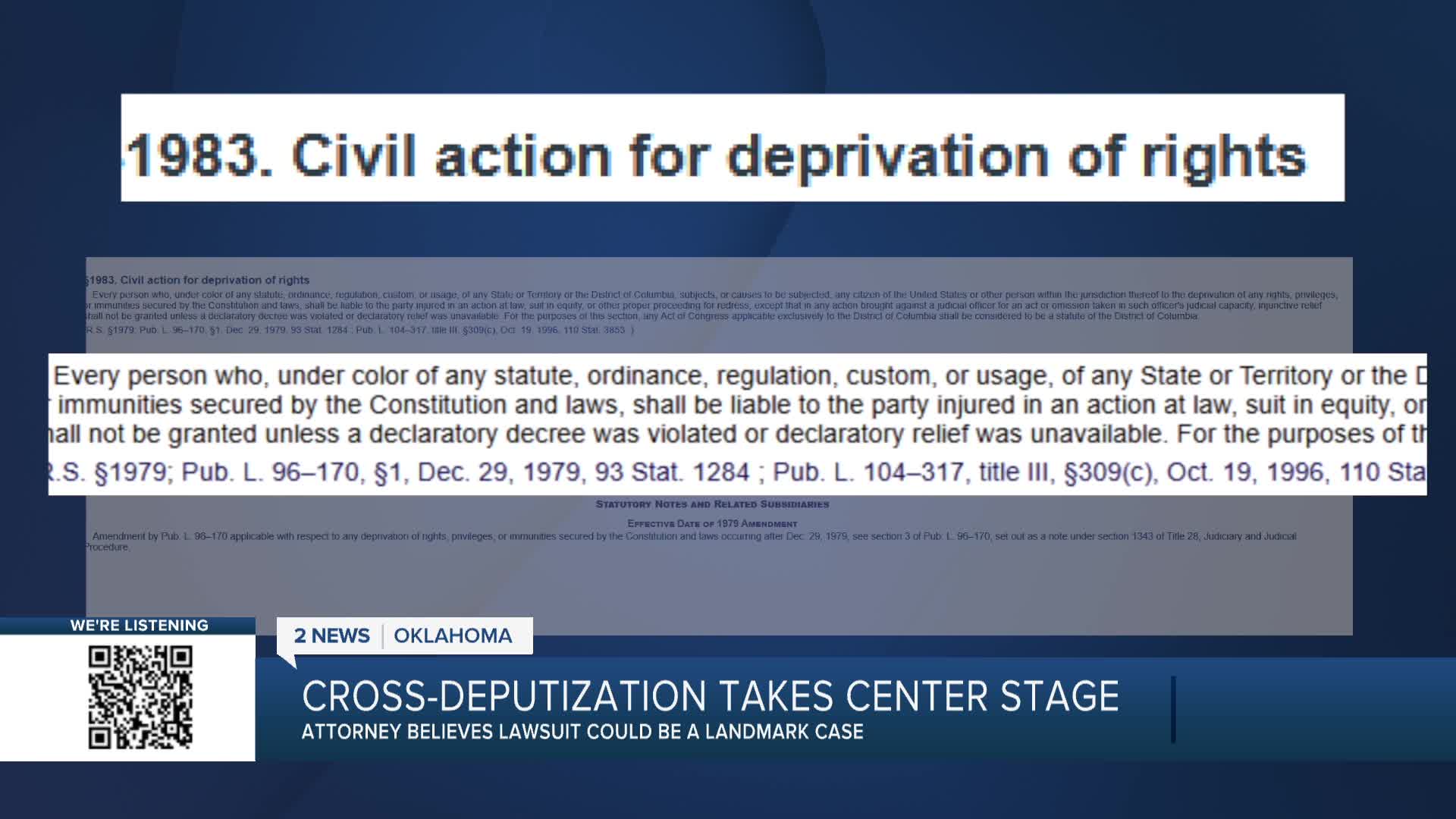TULSA, Okla. — A federal judge recently ruled tribal members cannot sue any state law enforcement officer for civil rights violations — if the state officer was working under a cross-deputization agreement on tribal land.
Mitchell Garrett, on behalf of Bobby Barrick’s wife, Barbara, sued several McCurtain County Sheriff’s Office deputies and an Oklahoma Game Warden, claiming the officers used excessive force in a 2022 arrest. Barrick died hours after the arrest.

Local News
Additional McCurtain Co. bodycam shows moments leading to Bobby Barrick’s arrest
Last week, the federal judge dismissed the case — not because he found no wrongdoing on the officers, but because of discrepancies in the law.
Chris Camp, Garrett’s co-counsel, summarizes the judge’s decision like this:
“If you have a tribal card and are arrested by someone who carries a cross-deputization card, you have no recourse against the state,” he said.
“We hate that Bobby’s case is the vehicle for this, because we would like Bobby’s case to be decided on the merits of Bobby’s case,” said Garrett.
A federal civil rights law, often referred to as “Section 1983,” allows individuals to sue state government officials. The judge determined that “tribal” is not specified in it.
“I don’t think the purpose of a cross-deputization agreement was to narrow the rights of tribal members and that is what this ruling is holding,” said Camp.
The judge also wrote that Choctaw law does not give the same civil rights protections for suing law enforcement.
Crispin South is a Choctaw Nation member and Arizona State University law student who recently published a review on Choctaw Nation civil rights. He also worked as a consultant on tribal legal issues. He does not believe the judge’s determination on Choctaw law is as cut-and-dry as it sounds.
“The Choctaw Nation has waived its sovereign immunity in some circumstances to allow lawsuits, but not others,” he explained. “I think [this particular issue] is a gray area where it hasn’t been litigated. It is not really clear under tribal law whether such a lawsuit would be able to proceed because we have not developed that type of case law.”
WATCH: Tulsa attorney believes lawsuit will be another landmark case, amid McGirt
South said he wishes the Choctaw Nation did not have to spend so much time in a political argument over McGirt with the state and that many court issues stem from the top leaders.
“Indian country, basically everywhere else, does not have the same kind of hostility between the state and the tribes that Oklahoma does,” said South. “I put most of the issues post-McGirt on Governor Stitt’s unwillingness to cooperate and recognize that tribes are governments. I think if he had been willing to do that in the first place, a lot of these issues would have been solved before they came up.”
Options, of course, include urging federal or tribal legislators to expand their own abilities to get sued by amending laws. That would also be a tough sell, and one of many reasons Garrett believes this case could one day move up to the U.S. Supreme Court.
Choctaw Nation of Oklahoma released a statement regarding the dismissal of Barbara Barrick’s lawsuit concerning the death of her husband, Bobby Barrick.
“Tribal members have many avenues to pursue justice, including through our robust Tribal court system. Maintaining these avenues is an important part of expressing our sovereignty,” Choctaw Nation of Oklahoma Senior Executive Officer Legal and Compliance Brian Danker said. “As the Choctaw Nation is not named in the suit and it is part of ongoing litigation, we cannot comment further.”
Stay in touch with us anytime, anywhere --
- Download our free app for Apple, Android and Kindle devices.
- Sign up for daily newsletters emailed to you
- Like us on Facebook
- Follow us on Instagram
- Watch LIVE 24/7 on YouTube





